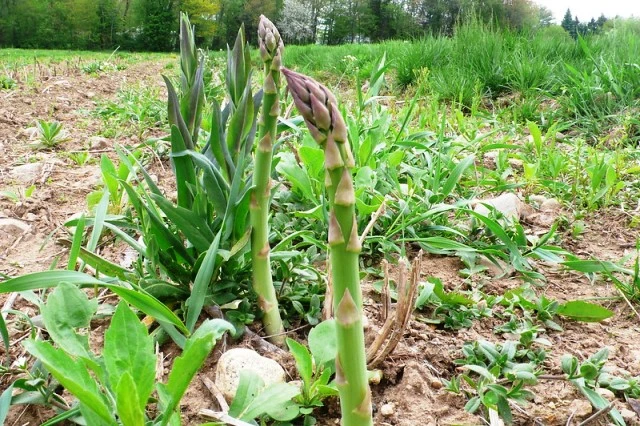Asparagus is a perennial favorite in vegetable gardens, known for its tender shoots and rich flavor. However, like many plants, asparagus thrives best when planted alongside compatible companions and can suffer when paired with the wrong neighbors. Companion planting, the practice of growing certain plants together for mutual benefit, is crucial for a healthy garden ecosystem. In this post, I have highlighted which plants you should avoid planting near asparagus.
The Importance of Companion Planting
Before diving into specific plants to avoid, it’s essential to understand why companion planting matters. When grown together, certain plants can enhance growth, deter pests, improve soil health, and boost overall yield. Conversely, some plants can compete for nutrients, attract harmful pests, or inhibit growth. Understanding these interactions helps gardeners create harmonious and productive garden spaces.
Bad Companion Plants for Asparagus
- Alliums (Onions, Garlic, and Leeks): Alliums, including onions, garlic, and leeks, are notorious for being bad companions for asparagus. These plants release a chemical called alliin, which can interfere with the growth of asparagus. Additionally, they compete for similar nutrients, particularly sulfur, leading to reduced growth and vigor in both plant types. Planting alliums near asparagus can stunt its growth and decrease overall productivity.
- Potatoes: Potatoes are another poor choice for planting near asparagus. Both plants are heavy feeders, meaning they require a lot of nutrients from the soil. When planted together, they can deplete the soil of essential nutrients, leading to poorer yields. Additionally, potatoes are susceptible to pests similar to asparagus, such as the asparagus beetle and certain soil-borne pathogens, increasing the risk of infestation and disease.
- Tomatoes: While tomatoes are a staple in many gardens, they should be kept away from asparagus. The reason is twofold: nutrient competition and disease susceptibility. Tomatoes are heavy feeders and can quickly exhaust the soil’s nutrients, leaving asparagus with less to thrive on. Additionally, tomatoes and asparagus are vulnerable to Fusarium wilt, a soil-borne disease that can devastate crops if one becomes infected.
- Corn: Corn is another crop that doesn’t pair well with asparagus. Corn grows tall and can shade asparagus, which prefers full sun to grow optimally. Furthermore, corn is a heavy feeder, competing with asparagus for essential nutrients like nitrogen, phosphorus, and potassium. This competition can weaken asparagus plants and reduce their productivity.
- Members of the Nightshade Family (Peppers, Eggplants): Similar to tomatoes, other members of the nightshade family, such as peppers and eggplants, are not good companions for asparagus. These plants can attract similar pests and diseases, increasing the risk of infestations and infections. Additionally, their heavy nutrient demands can lead to competition that hinders the growth of asparagus.
Tips for Successful Companion Planting with Asparagus
While knowing what not to plant is crucial, it’s also important to recognize good companion plants for asparagus. Here are a few tips for successful companion planting:
- Consider Herbs: Parsley and basil are excellent companions for asparagus. They repel asparagus beetles and improve the flavor of the asparagus.
- Flower Power: Marigolds and nasturtiums can deter harmful pests and attract beneficial insects to the garden.
- Legumes: Beans and peas fix nitrogen in the soil, enriching it and providing nutrients that benefit asparagus.
Conclusion
Companion planting is an essential strategy for creating a thriving garden. By avoiding planting alliums, potatoes, tomatoes, corn, and members of the nightshade family near asparagus, you can help ensure your asparagus plants remain healthy and productive. Instead, opt for beneficial companions like herbs, flowers, and legumes to create a balanced and flourishing garden ecosystem.
MORE POSTS: 15 Best Companion Plants for Leeks

